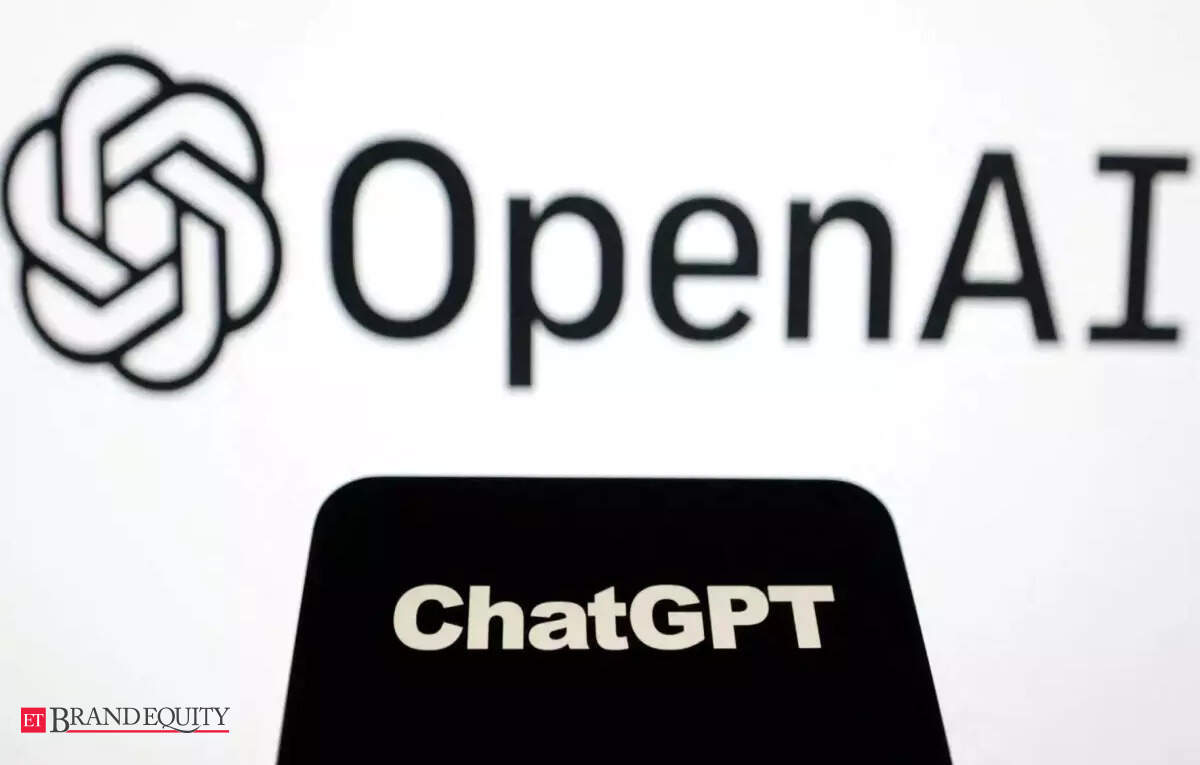OpenAI Facing FTC Investigation: A Deep Dive Into ChatGPT's Regulatory Challenges

Table of Contents
H2: The FTC's Investigation into OpenAI: Key Allegations
The FTC's investigation into OpenAI centers on concerns about the potential harms posed by ChatGPT's capabilities and OpenAI's practices. The commission is scrutinizing OpenAI's conduct, alleging potential violations of consumer protection laws. These allegations represent a significant hurdle for the company and could set a precedent for future AI regulation.
- Bullet Points:
- Allegations of deceptive trade practices: The FTC is investigating whether ChatGPT's outputs are misleading or deceptive, potentially causing harm to consumers who rely on its information without understanding its limitations. This includes concerns about the potential for ChatGPT to generate false or fabricated content.
- Concerns about data privacy violations: The massive datasets used to train ChatGPT raise serious questions about data privacy and user consent. The FTC is likely investigating whether OpenAI adequately protected user data and complied with relevant regulations like the GDPR and CCPA.
- Questions regarding the mitigation of algorithmic bias: Large language models like ChatGPT can inherit and amplify biases present in their training data. The FTC is likely examining OpenAI's efforts—or lack thereof—to identify and mitigate these biases, ensuring fair and equitable outcomes for all users.
- Discussion of OpenAI's data collection and usage policies: The transparency and clarity of OpenAI's data collection and usage policies are under scrutiny. The FTC is assessing whether these policies are adequately informing users about how their data is collected, used, and protected.
- Potential violation of consumer protection laws: The FTC's investigation broadly assesses whether OpenAI's actions violate various consumer protection laws, potentially leading to significant fines and other penalties.
The legal implications are substantial. OpenAI could face hefty fines, mandated changes to its practices, and reputational damage. The outcome of this investigation will likely influence how other AI companies approach development and deployment, shaping the future regulatory landscape.
H2: Data Privacy Concerns and ChatGPT's Data Handling
ChatGPT's training involves processing vast quantities of text and code, potentially including sensitive personal information. This raises significant data privacy concerns, especially regarding the potential for data breaches, misuse, or unauthorized access.
- Bullet Points:
- GDPR and CCPA compliance: OpenAI must ensure that ChatGPT's data handling practices comply with regulations like the General Data Protection Regulation (GDPR) in Europe and the California Consumer Privacy Act (CCPA) in the US. This includes obtaining proper user consent, providing data transparency, and ensuring data security.
- Data anonymization and user consent: Effective anonymization techniques are crucial to protect user privacy. OpenAI's practices regarding data anonymization and obtaining informed consent from users are key aspects of the FTC's investigation.
- Potential for identifying personal information: Despite anonymization efforts, there's a risk that personal information could be inadvertently revealed through ChatGPT's outputs. The FTC is likely investigating whether sufficient safeguards are in place to prevent this.
- OpenAI’s data security measures: The robustness of OpenAI's data security measures is under intense scrutiny. The FTC will examine measures to prevent data breaches and unauthorized access.
- The role of transparency in data handling practices: Clear and transparent data handling practices are vital for building user trust. The FTC's investigation will likely focus on whether OpenAI provides sufficient transparency about its data handling procedures.
Similar data privacy issues have arisen in other AI applications, highlighting the need for comprehensive data protection measures across the AI industry.
H2: Algorithmic Bias and Fairness in AI Models like ChatGPT
Large language models like ChatGPT are trained on massive datasets, which can reflect and amplify existing societal biases. This raises serious concerns about fairness and equity in AI systems.
- Bullet Points:
- Analysis of potential biases embedded within ChatGPT's training data: The FTC is likely analyzing ChatGPT's training data to identify potential sources of bias, such as gender, racial, or socioeconomic biases.
- Discussion of the impact of biased outputs on various user groups: Biased outputs can disproportionately affect certain user groups, perpetuating harmful stereotypes and inequalities. The FTC's investigation will likely examine the real-world impact of such biases.
- Explanation of techniques used to detect and mitigate bias in AI: Mitigating bias in AI requires employing various techniques, such as data preprocessing, algorithm adjustments, and ongoing monitoring. The FTC will assess OpenAI's efforts in this area.
- The ethical considerations of deploying potentially biased AI models: Deploying biased AI models raises serious ethical concerns, potentially leading to unfair or discriminatory outcomes. The FTC's investigation will focus on these ethical implications.
- The call for greater transparency and accountability in AI development: Transparency and accountability are crucial for ensuring fairness and mitigating bias. The FTC is likely pushing for greater transparency in AI development practices.
Examples of biased outputs from similar AI systems have demonstrated the significant consequences of deploying biased AI models, further underscoring the need for robust mitigation strategies.
H2: The Future of AI Regulation in the Wake of the OpenAI Investigation
The FTC investigation into OpenAI will likely have far-reaching implications for the AI industry, accelerating the need for clearer regulations and ethical guidelines.
- Bullet Points:
- Potential for increased regulatory oversight of AI development: The investigation could lead to increased regulatory scrutiny of AI development and deployment, possibly involving stricter rules and oversight.
- Discussion of the need for industry-wide standards and best practices: The industry needs to establish common standards and best practices to address issues like bias, privacy, and safety in AI systems.
- Analysis of the role of government agencies in regulating AI: Government agencies will play a critical role in shaping AI regulations, balancing the need for innovation with the need for consumer protection.
- The importance of public discourse and stakeholder engagement: Open and inclusive discussions involving various stakeholders are necessary to ensure that AI regulations are effective and ethically sound.
- The development of ethical guidelines for AI development and deployment: Establishing clear ethical guidelines will help guide the responsible development and deployment of AI systems.
Potential future regulations could include stricter data privacy rules, requirements for bias mitigation, and increased transparency in AI algorithms. This could significantly impact innovation, but it's crucial to balance innovation with ethical considerations and consumer protection.
3. Conclusion:
The FTC investigation into OpenAI and ChatGPT underscores the urgent need for robust regulations to govern the development and deployment of powerful AI systems. The investigation highlights crucial concerns about data privacy, algorithmic bias, and the responsible use of AI technology. The outcome will significantly impact not only OpenAI but also shape the future of the AI landscape.
Call to Action: Stay informed about the evolving regulatory landscape surrounding AI and the ongoing OpenAI FTC investigation to understand the implications for the future of ChatGPT and other generative AI technologies. Learn more about responsible AI development and advocate for ethical and transparent practices within the AI industry.

Featured Posts
-
 Il Voto Francese E La Sfida Di Bayrou Contro Le Pen
May 05, 2025
Il Voto Francese E La Sfida Di Bayrou Contro Le Pen
May 05, 2025 -
 Eviter Les Catastrophes Une Approche Preventive
May 05, 2025
Eviter Les Catastrophes Une Approche Preventive
May 05, 2025 -
 Prevenir Les Betises Affuter La Guillotine
May 05, 2025
Prevenir Les Betises Affuter La Guillotine
May 05, 2025 -
 Eubank Jr Prioritizes Benn Fight Over Potential Canelo Matchup
May 05, 2025
Eubank Jr Prioritizes Benn Fight Over Potential Canelo Matchup
May 05, 2025 -
 Beterbiev Bivol 2 Full Fight Recap Parker Vs Bakole Knockout And Analysis
May 05, 2025
Beterbiev Bivol 2 Full Fight Recap Parker Vs Bakole Knockout And Analysis
May 05, 2025
